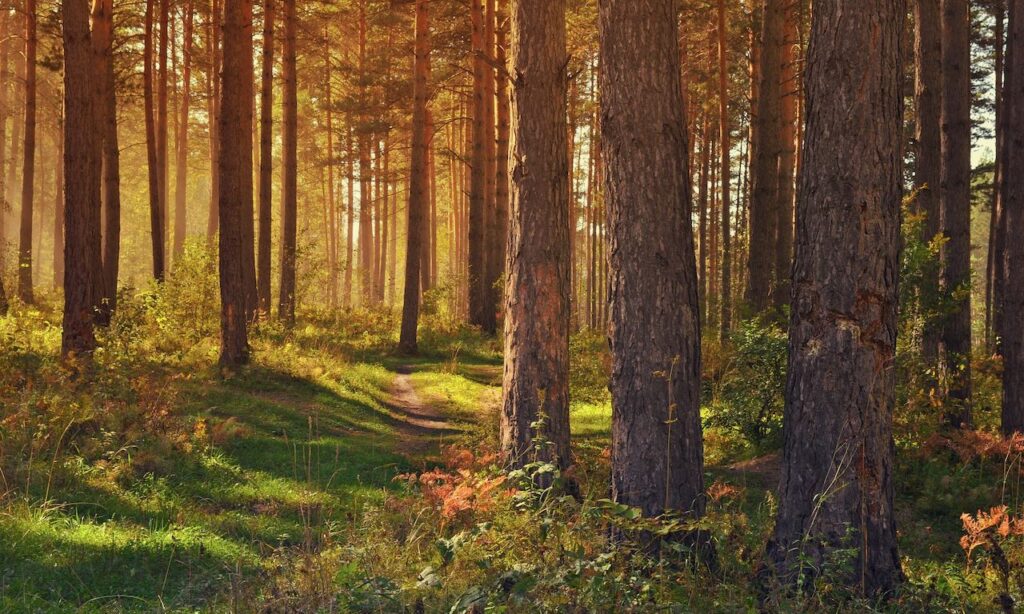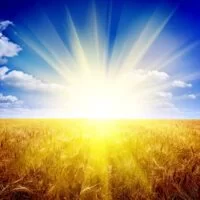
Ask Sananda 48: Your Divine Self
Question: What is meant by your divine self?
Listen or download
Read
Welcome, this is Sananda. Often in inner journeys, talks, written teachings, I refer to your divine self, so it might be useful to talk a little bit about who or what your divine self might be. If you stop and consider yourself, who you are, then probably quite a lot of your idea of who and what you are is going to relate to your human experiences, your human history, your physical body, the personality self that you’ve created or found in existence somehow or other, that acts as a sort of interface between an inner sense of being and the world around you. And it may be a bit of a puzzle to know where your divine self fits into this sense of self. And it is a puzzle because actually in many ways it doesn’t – or at any rate the relationship between your familiar human self and your divine self is an uncertain one.
You’ve perhaps watched a young child who’s been given a present, nicely wrapped. It’s not yet all that familiar with the idea of presents and unwrapping them and, whilst helped along, it turns out to be more interested in the bright, decorated wrapping paper than the carefully chosen present within. And perhaps we could start with that as an analogy for the relationship between your human self and your divine self, that your human self, this personality, is a kind of bright, beautifully decorated wrapping paper that mesmerises, attracts your attention. And part of the challenge of coming to know, to realise your divine self is that divine self comes without bells and whistles. It is, in a sense, rather modest. It doesn’t present to you characteristics or a character, and when you form relationships of all kinds, whether with another person or whether with an object that forms part of the material world or the world as a whole, then one of the ways in which you navigate a relationship of any kind, as I say, is to notice its characteristics, its colour, its shape, its behaviour, its way of being in the world. You are very skilled observers of all of this. It is part of the delight of being alive that you can observe all of the intricacies that make up the world in which you find yourself. And the divine self of which I speak doesn’t really have any of this. So, as often it can feel, if you choose to think about it at all, notable by its absence more than its presence, by the question marks it generates in your mind rather than the answers that it gives, and so the whole business, should you choose to do it, of coming to in some way know or, as I will sometimes put it, to embody your divine self has this twofold quality. First of all, what is your divine self? And second, and perhaps equally important and relevant, is, how do you find it anyway? Where is it? How would you know it?
When you find yourself interested in growing spiritually, one of the analogies that will often be used by many teachers, and indeed perhaps by yourself as well, for this exploration of your spirit, is the journey. One of the familiar versions of this idea of the journey is the sense that that’s some point, in some way, you set out from oneness with the Divine and travelled out into an experience of being an individual, and that now, perhaps because you’re turning in this lifetime perhaps you have in other lifetimes as well, but in this lifetime you’re turning to be interested in this journey of the spirit. It can be the idea of having travelled out from the Divine, that now, sometimes, somewhere, somehow, you’ve turned around and choosing to travel back to the Divine, to the Source from which you came. And it’s a very understandable and useful analogy.
After all, if this is not literally true for you every day, at least if you are able-bodied and if you are fortunate enough to have a roof over your head, then there would be many days in which you are replicating this notion of the journey out from home and back to home and, in addition, that there is meaning for you in travelling outwards from home and then turning back towards home. The meaning at its most mundane may be that it’s you earning a living so that you can put food on your table in this home that you have. But more broadly, of course, you have a sense that your life, maybe not always a thrilling adventure, is a kind of adventure that each day that you choose to go outwards from home, that in some way or other you are optimistic, that you’re probably growing, you’re gathering experiences, meeting challenges, doing your best to master the challenges that the Universe presents you, and so on. So the journey out from home and back to home rings true quite deeply for most people.
But then there can be this other sense, this other teaching that seems at first contradictory. This teaching says you’re not going anywhere, you never left home, so how would you return home? And this teaching says you are one with the Source of All, or one with the oneness of all that is, or whatever particular language appeals to you, and that travelling is not involved at all. It’s a different kind of process, which might be likened more to, shall we say, you waking up at home having had a remarkable series of dreams, and taking just a little while to come to and think oh no, here I am, I’m at home, this is my day here. Whatever else was going on was a kind of dream, a mirage, and so this too is a familiar idea that the life you are living now is a kind of dream or, as I indicated, it might be considered, a few moments ago, a sort of wrapping paper, and that the real, whatever the real might be, is not the wrapping paper itself, but whatever has been wrapped up in the wrapping paper your divine self.
So if we come for a moment – let’s step into the Bible and remember the Jesus of the Bible, who is quoted as saying, “I am the way”. What’s going on here? I would suggest that it’s bringing these two notions of what’s going on as you grow spiritually together. You’ve got the notion of the way, the journey, but then in this statement, is not, oh the journey is to go here or to go there to gather this experience or that experience, to grow in wisdom, to grow in love. No, it is just that being is the journey. I am the way. I am, and I am presence. Now that might be quite closely related to your divine self. It might even turn out to be, sort of, the same, or at least your I am presence might be the door to your divine self. Here is this quotation from the Bible, “I am and I am is the way”.
One of the strangenesses of this life you are living is that you know both stillness and movement, change and no change. Mostly, you are experiencing change. It’s sometimes said that the one thing you can be sure of, the one thing that doesn’t change in this universe, is change. Change can be rapid: a spin of an electron. It can be very slow: the wearing down of a mountain until it becomes a plain. But change, everything changes. So we have another puzzle about your relationship with the divine self. For your divine self, in proper fundamental terms, really doesn’t change. It’s the stillness and you can know this in yourself. You know you can look at yourself, you can look at yourself in the mirror and you know you’re changing. You’re certainly not the same as you were when you were six years old (unless you listening to these words are six years old), so change is very familiar. But you also carry within yourself, I would suggest (sometimes it’s a little buried, but it’s there) you have some sense that at the heart of your heart of your heart of your heart, there’s a stillness. That there’s something that doesn’t change. You may not be able to name it or point to it very easily. It may be far more mysterious to you than the process of change, mysterious though that can certainly be. And so, again, when you come to this notion of stillness as part of your experience of being, you find yourself drawing close to your divine self. Stillness may not be your divine self as such, but it can feel a lot closer than the changing self.
Now, there can be certain kinds of misleading stillness that you find within yourself, that kind of locked-din sense of whatever changes in the world around me, I don’t change, I do it my way, that kind of idea which is an illusion. So there’s a difference between stillness and rigidity or resistance. And you know this. The stillness can be profoundly mysterious because it can feel as if, as you begin to touch it, that it doesn’t really have any limits and, of course, that will be so, because the stillness is not bound by time and space, which are the arenas of change, not bound by even the moment, the now. The stillness of your divine self is beyond that even. This also means that the notion of realising your divine self, as well as being puzzling, can be actually frightening, perhaps even if you stop and consider it seriously, very frightening. That is to say, as you touch with your awareness or reach for connection with or some sense of your divine self, then all of your fears will be stimulated.
So it’s not actually that your divine self is scary, it’s not really quite like that. It’s more that all that constitutes the self you know in a world of change experiences a profound sense of threat, because when you realise your divine self really that self is going to cease to exist. So as you begin more and more to realise your divine self one of the things that you may find, that you’re likely to find (and I’m speaking in this way because it’s important to leave room for your own unique experience. It’s not my purpose to dictate to you what you have to experience, more to sketch in some of the possibilities, or indeed probabilities, as you move in this direction) – so what you might find is that, like the child as she grows and finds that, no, the wrapping paper though delightful, is not actually what the whole present business is about. There’s this new teddy, or whatever it might be, and with that kind of cottoning on, the giver and the receiver of the gift find themselves in alignment with one another. We might say that your divine self is a little bit like the teddy bear, in this sense: that as you tune into your divine self, you’re tuning into the gift that is intended and therefore you find that your own conception of being is moving into greater alignment with the Source of All, and in doing so, a lot that is bound by the regulations, we might say, of time and space, just isn’t there any more.
You do not have to deny all that makes up your human presence, far from it. It continues to be your vehicle in this reality, but your relationship, we might almost say your allegiance, has changed. It may be that, in fact, what you find is that you love your human presence, all that makes up your human self, much more than you did before, that those internal antagonisms that you may be familiar with, that I sometimes summarise, as I don’t like the size of my nose, but really anything will do, all of those familiar internal thoughts and quarrels in your relationship with yourself. Perhaps they don’t actually cease to exist, but they cease to have any significance. They’re not really interesting, you might say, but you can love them. You can love them as you would love a child who is feeling insecure, and to give that little child a hug so that he feels better about himself.
So it’s not that you are abandoning your human self when you identify more and more with your divine self. Far from it. But, as I said, the relationship changes. Your concern becomes, we might say, to make room for the Source of All in every moment that is given for you and that, we might say also, is – that’s embodying your divine self. So in a way your human self becomes much bigger. But in another way, it’s perhaps easier to think of a lot of the constructs of your human self just melting, because they’re not really relevant. So as you bring the divine more and more into your life, in a certain kind of way you’re having to grow to make room for the divine, because the divine is infinite. But you’re still human. You’re here to be human. And so there’s this doubleness really. On the one hand, as you realise your divine self, your human self dies, or what you’ve thought of as being your human self, what you’ve thought of as you, dies. But in another way, moment by moment, you’re holding all that is remaining of your human self in absolute, unconditional love. How wonderful it is to have this focus that I call Chris, or whatever your name is, gives me this unique viewpoint on all that is. But the fundamental purpose I have in creating this unique viewpoint is to allow the infinite love, the endless light of the Source of All, to be as fully present as I can allow, as I can permit, as I can experience, as I can be. And so, at some point, then, that journey, that travelling the way, turns into realising that, to paraphrase the poet, you return home to find that you’re always here. And (again to word this cautiously) in a certain kind of way, with that realisation, all that your journey was vanishes – everything. So we come back to that biblical expression, “I am the way”. The way leads to a totality of I am as Divine Presence. Good, thank you.

